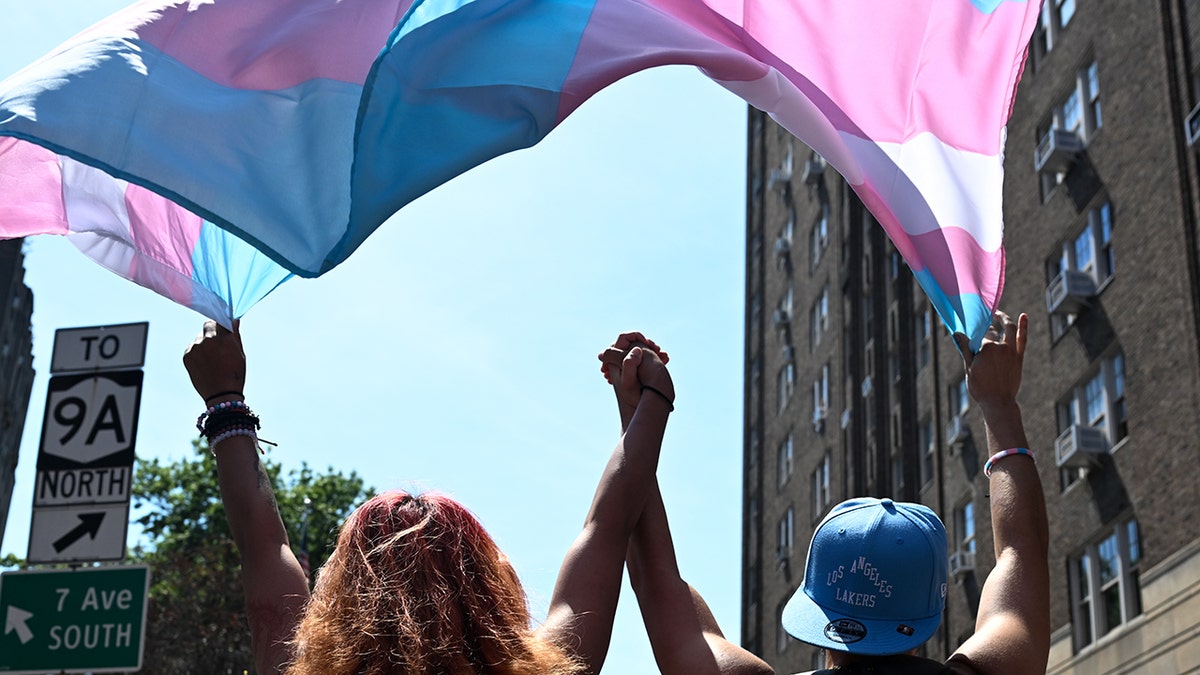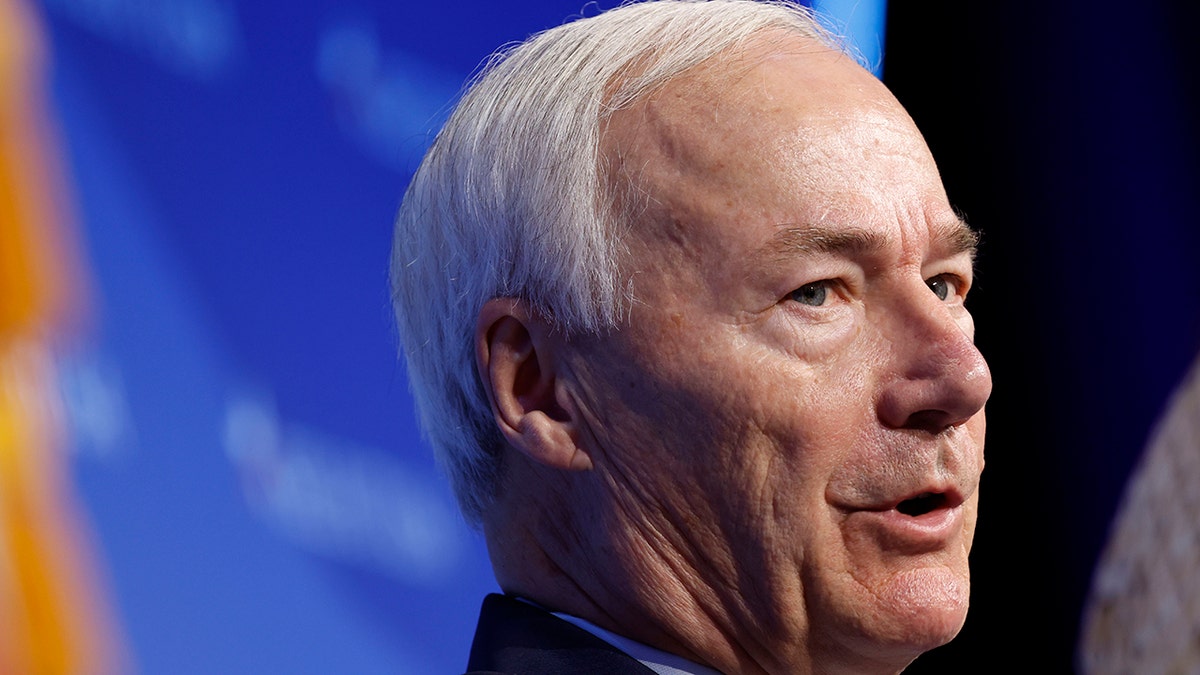Tucker questions Arkansas governor on 'how deeply' he's studied youth gender reassignment
'Tucker Carlson Tonight' host presses Gov. Hutchinson on why he vetoed a bill banning youth gender reassignment surgeries
A federal appeals court on Thursday said Arkansas cannot enforce its ban on transition-related medical treatments such as hormones or surgeries for transgender minors under the age of 18.
A three-judge panel of the 8th U.S. Circuit Court of Appeals affirmed a judge’s ruling temporarily blocking the state from enforcing the 2021 law.
A trial is scheduled for October before the same judge on whether to permanently block the law.
Arkansas was the first state to enact such a ban, which prohibits doctors from providing so-called "gender confirming" hormone treatment, puberty blockers or surgery to anyone under 18 years old, or from referring them to other providers for the treatment. There are no doctors who perform "gender-affirming" surgery on minors in the state, according to The Associated Press.
"Because the minor’s sex at birth determines whether or not the minor can receive certain types of medical care under the law, Act 626 discriminates on the basis of sex," the court’s ruling Thursday said.
The American Civil Liberties Union challenged the law on behalf of four transgender youth and their families, as well as two doctors who provide what they describe as "gender confirming" treatments.

Two trans people hold hands while marching under a trans pride flag in the New York City Pride Parade on June 26, 2022, in New York City. (Alexi Rosenfeld/Getty Images)
Republican Gov. Asa Hutchinson vetoed the ban last year, but GOP lawmakers overrode him to enact the law. Multiple medical groups, including the American Medical Association, oppose the ban and have said the care is safe if properly administered. The Justice Department has also opposed the ban as unconstitutional.
In July 2021, however, the attorney generals from 17 other GOP-controlled states praised the Arkansas legislature for protecting vulnerable children from using treatments like puberty blockers, which have been classified as "experimental" by countries including Finland, Sweden and the United Kingdom.
"We are filing this brief because, like Arkansas, we are concerned about the surge in recent years of children suffering from gender dysphoria and other forms of gender-related psychological distress,"Alabama Attorney General Steve Marshall said in a statement at the time. "Like Arkansas — and like those challenging the SAFE Act — we are concerned because these vulnerable children are suffering greatly and need help. The vital questions are, how do we help them, and how do we avoid serious irreversible damage."

Asa Hutchinson, governor of Arkansas, speaks on a panel during the SelectUSA Investment Summit in National Harbor, Maryland, June 27, 2022. (Ting Shen/Bloomberg via Getty Images)
"The evidence also shows that nearly all children whose gender dysphoria is treated with puberty blockers to ‘buy time’ will proceed to take cross-sex hormones and seek other medical interventions with irreversible, lifelong consequences—complications such as infertility, loss of sexual function, increased risk of heart attacks and strokes, bone density problems, risk of altered brain development, social risks from delayed puberty, and mental health concerns," Marshall said.
"With the stakes so high, the harms so great, and the known benefits so paltry, the Arkansas legislature did not have to embrace an experimental path in lieu of the one that has served the medical profession so well for so long: First, do no harm," he added.
CLICK HERE TO GET THE FOX NEWS APP
Arkansas argued that the restriction is within the state’s authority to regulate medical practices. An attorney for the ACLU told the appeals panel in June that reinstating the restriction would create uncertainty for families around the state. Hutchinson vetoed the ban following pleas from pediatricians, social workers and the parents of transgender youth who said the measure would harm a community already at risk for depression and suicide. Hutchinson said the law went too far, especially since it wouldn’t exempt youth already receiving the care.
The Associated Press contributed to this report.












































